
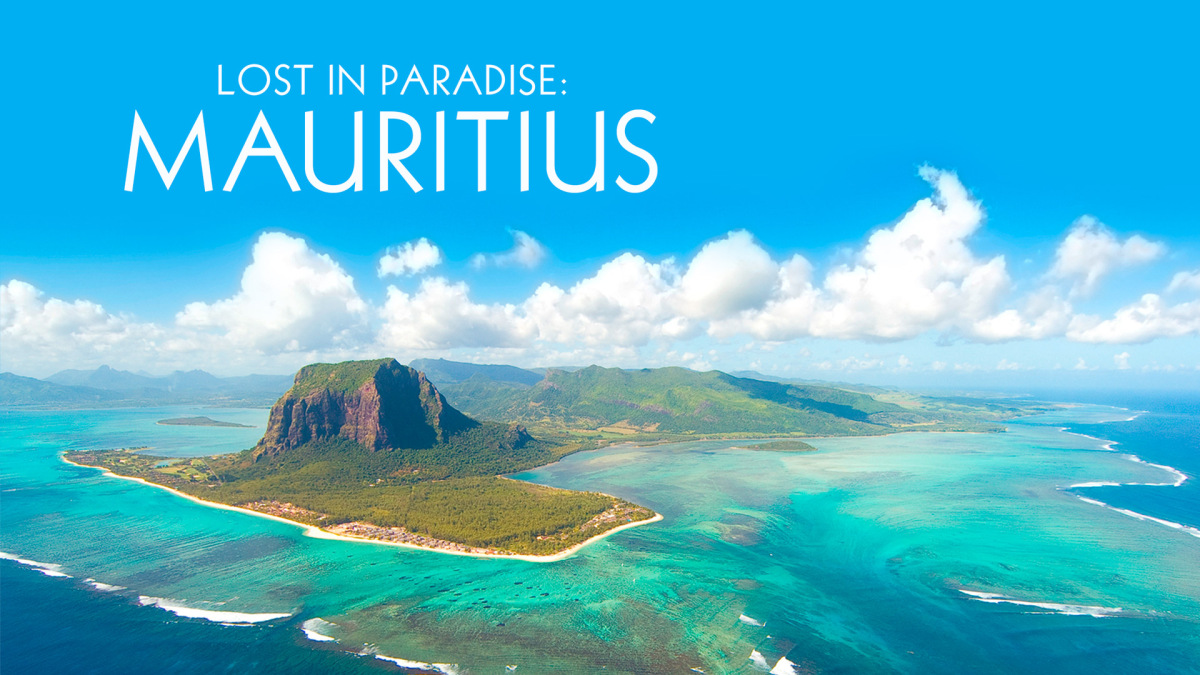
UNWTO Secretary General launched Travel, Enjoy and Respect in Mauritius
The United Nations World Tourism Organisation’s (UNWTO) Secretary-General, Dr. Taleb Rifai, was in Mauritius until 2nd August. He was invited by Air Mauritius on the occasion of the 50th-anniversary celebration of the company.
Taleb Rifai also participated in various activities during his stay, such as working sessions with the Ministry of Tourism and Air Mauritius, and a seminar on aviation and sustainable tourism.
He also launched the “Travel, Enjoy and Respect” campaign in the context of the international year of sustainable tourism for development. Several visits around the island were scheduled for the UNWTO Secretary-General during his visit to Mauritius. Dr. Rifai was being accompanied by Elsia Grandcourt, the UNWTO Director for Africa.

ETOA Statement: Ministerial Response to European Border Delays is ‘Self-Mutilation’
The new Schengen border controls, which were planned and announced before the Brexit vote last year, impose rigorous checks on those people entering the Schengen zone, which embraces 26 European countries. This has caused severe delays – the very kind of delays routinely experienced by visitors entering the UK from the USA or Japan. Having “hard” borders create a miserable experience for visitors. These new controls apply to all Europeans, irrespective of nationality, if they arrive from outside the Schengen zone.
What is illuminating is the reaction these new controls have caused in UK government circles. An unnamed UK minister, noting the disruption a “hard” border creates, has suggested that the UK should retaliate by imposing “British-only lanes in the UK if they want to behave like that”.
“There are many ironies here,” said Tom Jenkins CEO of ETOA. “What is proposed is not a retaliation but an escalation. It shows disregard for legal rules and international agreements. When British citizens are inconvenienced abroad, the minister feels free to attack foreigners with meaningless delays. It will serve them right for wanting to come here and for being foreign. That is about as close to a thought process as we can spot.”
Having ‘hard borders’ is economically catastrophic: failures in this area carry their own punishment. According to the UK Tourism Alliance, EU visitors spend over £10 billion per annum, supporting over 185,000 jobs. EU visitors alone count for more jobs than motor manufacturing.
Yet these people are now singled out for attack. Abusing customers out of a misplaced sense of grievance is a prelude to decline.
The countries of the Schengen area are behaving exactly the way the UK has been suggesting they do. An instant way of improving the situation would be for the UK to join more aspects of the Schengen agreement (the UK is already part of the Schengen Information System. They are, after all, now imposing stringent controls.
“This is a discussion of queues: a French word for what was perceived as being a French invention. When it was first witnessed in Paris, English correspondents in the mid nineteenth century hoped that no-one in Britain would have to resort to such a mechanism. We are now experiencing what we have long imposed on others: our subsequent sense of outrage prompts an urge for self-mutilation.”

Ambassador Javier Paulinich takes office as new Permanent Secretary of SELA
Caracas, 01 August 2017.- Ambassador Javier Paulinich takes office today as new Permanent Secretary of the Latin American and Caribbean Economic System (SELA), an intergovernmental organization that brings together 27 countries in the region, for the period 2017-2021.
Ambassador Paulinich will take over as the highest-ranking authority of SELA, with the purpose of strengthening the positioning of the body in the region and guiding its work according to the current needs of its Member States.
The new Permanent Secretary of this organization was elected at the XII Special Meeting of the Latin American Council of the Latin American and Caribbean Economic System (SELA), held on 13 June 2017 in Caracas.

OECD includes UNWTO in the list of Development Assistance Organizations
The OECD Development Assistance Committee (DAC), representing thirty of the main donor countries, has included the World Tourism Organization (UNWTO) in the List of ODA- eligible International Organizations.
UNWTO’s inclusion in this list implies that countries´ financial contributions to the Organization such as membership fees can now be considered Official Development Assistance (ODA), which is funding that aims to advance economic development and welfare in developing countries. As such, contributions to the UNWTO can be part of the commitment of OECD DAC Members to dedicate 0,7% of Gross National Income to ODA. Furthermore, voluntary contributions for UNWTO activities and technical cooperation projects in any of the 146 ODA- beneficiary countries continue to be considered as well as ODA.
This landmark decision coincides with the celebration of 2017 as the International Year of Sustainable Tourism for Development, as proclaimed by the United Nations General Assembly.
The inclusion of UNWTO in the List, as well as the International Year 2017, are a clear recognition of the important contribution of sustainable tourism to development, peace and prosperity and thus to the universal 2030 Agenda and its 17 Sustainable Development Goals.
UNWTO very much welcomes this decision as it opens new opportunities to increase ODA flows for tourism, which currently only represents 0,14% of total ODA, despite representing 10% of world’s GDP and 1 in 10 jobs.
“This is a strong encouragement to UNWTO’s work in and commitment to advance sustainable, responsible and universally accessible tourism as a major contributor to economic development, environmental and cultural preservation and peace” said UNWTO Secretary-General, Taleb Rifai.
“Spain congratulates UNWTO and its Secretary-General, Mr. Taleb Rifai, for this outstanding achievement, which is an example of the fruitful collaboration of our country with the Organization”, said the Minister of Foreign Affairs and Cooperation of Spain, Mr. Alfonso Dastis.
The proposal was presented to OECD by Spain, UNWTO’s host country, and co-sponsored by Germany and the United Arab Emirates.

Rural Tourism: Sharing the Countryside
(Huzhou, China) – Interest in Asia Pacific rural tourism has spiked in recent decades, much like country
retreats did in 19 th -century Victorian England, and for similar reasons. The growing urban Asian
population is seeking to escape their pressure-filled, yet often mundane city life, and are increasingly
turning to leisure and relaxation holidays in the countryside.
However, the Asia Pacific faces a much different situation today than Thomas Cook in the 1850s. To
explore this organically rising phenomenon, Huzhou City, China, partnered with the Pacific Asia Travel
Association (PATA) and World Tourism Organization (UNWTO) to host The Second International Rural
Tourism Conference from 16-18 July 2017, in Anji County.
During the opening ceremony, PATA Chief Operating Officer Dale Lawrence presented the International
Rural Tourism Destination Base Award to Anji County Magistrate Chen Yonghua. Huzhou and the Anji
region are known for forested hills, bamboo varieties, white tea, rivers and reservoirs, pandas, and
calligraphy.
PATA Foundation Chairman Peter Semone then launched the UNWTO publication, “Report on
International Rural Tourism Development: An Asia Pacific Perspective”. The 200-page document
presents case studies on 14 rural tourism destinations in the Asia Pacific, including Huzhou.
Mr Semone, the report’s lead writer and editor in chief, said, “As 2017 is the International Year of
Sustainable Tourism for Development, we wanted this publication to focus on best practices and
successful strategies in Asia Pacific rural tourism development.”
Shen Mingqua, Secretary of the Anji County Tourism Committee, then welcomed the 300-plus delegates
from more than 15 countries to “The Home of Asia Pacific Rural Tourism”. Mr Mingqua presented Anji’s
achievements including the first certified rural tourism destination and the only recipient of the UN Habitat
Award.
“Innovation is key to our success…We are like a model for rural tourism ideas,” Mr Mingqua said, noting
that Anji is now trying to lure the MICE crowd. “We want businesses visiting here for meetings to stay and
see where their products come from and how they are made.” The tourism committee is also targeting
families for agricultural experiences.
Dr Ong Hong Peng discussed rural tourism products and pointed out that potential offerings crossed all
sectors. “The range of products is very diverse and can include almost everything,” the former Secretary
General of the Malaysia Ministry of Tourism and Culture stated. He presented a “six-part rural tourism
house” with rooms for affordable luxury, natural adventures, niche segments, festivals and events, MICE,
and culture and heritage.
Dr Peng then brought accommodation and lifestyle into the mix. “Homestays are important for rural
tourism, but they must be more vibrant…innovative…to add value…It can be in all ranges of
accommodation, as some people want privacy.” He suggested a “hybrid of a village stay and homestay”.
Airbnb China Vice President An Li stepped in with an alternative for rural tourism accommodation. “Airbnb
is ‘all for one’ tourism in a share economy. Distribution is better than hotels, and more hosts can
participate,” she said, adding, “Airbnb-ers stay twice as long as those in traditional accommodation. They
tend to be bigger spenders, and want good accommodation.” Mrs Li noted that spin-off employment from
Airbnb goes to local women, young people, and the elderly.
China’s Naked Retreats presents luxury in nature alongside memorable rural experiences that positively
impact communities. “Shanghai is crowded and smoggy, and people want to holiday outside the city,”
said Tolga Unan, the resort chain’s general manager. “We employ and work with the locals and learn
from them and about their lifestyle. Our aim is to preserve and complement, and not change.”
Conference Moderator and CCTV Host Bai Yansong injected that rural tourism is not just about the
countryside. “Urban areas are changing to become more rural-like, by embracing a green environment…It
is not just urban to rural…it’s a two-way street that connects and shares.”
The conference then shifted to a panel discussion on “Sharing the Countryside”, which carried over from
the keynote presentations. UNWTO Executive Secretary for the Asia Pacific, Xu Jing, observed that the
region is a latecomer to rural tourism, and it must adjust the old model to meet the new economic climate.
“The experience needs to be authentic. The setting may be the community, but the actual home is the
actual setting.”
Mr Jing added, “Visitors want to do what locals do, and they want to integrate their urban lifestyle with
rural aspects…Rural life is a dream for urbanites. They forgot what it’s like…listening to the sounds of
nature and seeing the stars.” He noted that rural people, who migrated to the city, often visit their
hometowns and even retire there.
Dr Liu Feng, Chief Advisor for the Beijing Davost Group, went further, stating, “City dwellers are envious
of those who visit or move back to rural areas.” He also picked up on Mr Yansong’s idea of “reverse
development”, noticing the growth in rural-type cities. “Rural is nostalgic, and people want to revitalize
traditional life,” he said. “They connect rural tourism with urban life. It’s more personal, community-like,
and simple.”
The discussion moved back to the countryside, as PATA Vice Chairman Chris Bottrill brought up
cooperation versus competition or “co-opetition”. “Having both improves the product,” he said, pointing to
authenticity of experiences and differentiation. “We should share approaches and what we learn within
and between countries.” As for challenges facing rural tourism development, Mr Bottrill said that when
working with rural communities, you need time, trust, and respect…“It’s not just ‘UNESCO’ that attracts
visitors.”
UNWTO Expert Committee Member Madam Xu Fan suggested “world heritage” have a more personal
touch, and looked to the next generation to create new innovative ideas. Regarding the pace of
development, she said, “Rural tourism is like planting and harvesting crops. It needs ongoing care, and
the focus must be on the farmer-tourist relationship and not just money for farmers. Rural tourism is about
rural lifestyle and not its components.”
UNWTO Senior Researcher Omar Nawaz also cautioned against fast development, as it affects quality.
“Planning is one thing, but implementation takes time. You need a long-term concept…a relationship
between rural and general tourism,” he said, and suggested learning from other’s mistakes. “Listen and
learn. Adapt to new demand. Focus on inclusive development, and develop from slow to fast. The
challenge for rural tourism is in developing too fast.”
Mr Semone compared rural tourism development in Europe to the Asia Pacific. “European rural tourism
has been continually developing for more than 100 years, during a period of large middle-class growth.
The Asia Pacific has only been on line for 20 to 30 years, but this presents an opportunity for a new Asian
initiative,” Mr Semone said. “Learn lessons from Europe, but make development unique to Asia.”
Mr Semone noted his belief that Asians are reluctant to innovate even though there are plenty of creative
people. “Asians tend to copy rather than try something different. They need a more Asian-centric
development model. Too often, Asian countries get caught up in the copycat stage, such as Laos. Let’s
do something different.”
Mr Semone also discussed the “Report on International Rural Tourism Development: An Asia Pacific
Perspective”. “This report aims to showcase the power that rural tourism has to help people escape
poverty, improve their livelihoods, and slow urban migration.”
The report defines “rural tourism” as a “distinct element of both sustainable and responsible tourism.”
Criteria include a rural location and activities that remain rural in scale, traditional in character, growing
slowly and organically, and connected with small-scale enterprises and local families.
Rural tourism may include niche tourism segments such as ecotourism, agro-tourism, and geo-tourism.
“Rural tourism is not a simple and easily identifiable market segment,” Mr Semone said.
Each of the report’s 14 case studies has a different theme, as the situations of their destinations vary.
However, all analyze policy and planning, product development, marketing and promotion, and social and
economic impacts. A closing discussion investigates key challenges, opportunities, and lessons learned.
“The case studies demonstrate that with the right circumstances and conditions, rural tourism can create
new sources of income at both the community and household levels,” Mr Semone said.
He stressed the necessity for a new type of PPP – people-public- private partnerships – in which all
stakeholders are represented. “This is a new concept that challenges the status quo of competitive
jealousies in favor of collective benefit.”
The report concludes that rural tourism destinations need to create responsible and sustainable business
plans and proactive marketing strategies that account for their specific situations. Mr Semone summed
up, “There are different paths to the same goal.”
Today, you’d be hard pressed to find a rural tourism package on Thomas Cook’s website, but more
foreign visitors are seeking an experiential holiday in secondary Asian destinations, and rural tourism
offers them another avenue for a responsible and authentic countryside stay.

Tourism Development and Conservation: Challenges and Opportunities
The Zimbabwe Minister of Tourism & Hospitality Industry, Hon. Dr. Walter Mzembi spoke on the occasion of the Parliamentary Conservation Caucus Launch on “Tourism Development and Conservation: Challenges and Opportunities on July 19 at the Meikles Hotel, Harare:
Transcript:
Tourism worldwide is in the export category. It ranks third, behind only fuel and chemicals, and ahead of food products and automotive industry. In many developing countries such as Rwanda, tourism is the top export sector. It contributes 10% to Global GDP, generates 1.5 trillion USD in export earnings, employs 1 in every 11 globally, accounts for 30% of total exports in services and it is 7% in quantum for all global trade. The sector has experienced exponential growth from 25 Million international arrivals in 1950 to 1.2 Billion international arrivals in 2016.
Africa experienced a tremendous growth of 8.1% from 53.8 million in 2015 to 58.2 million in 2016. Global growth has been sustained since 2009. However Africa’s market share has remained very small at an average 3-5% in the past decade.
Going forward to 2030 aligned to the SDGs timelines, the sector is signposting 1.8 Billion. However, we are likely to revise these figures on the back of fast growth of the Chinese outbound tourism market. The Chinese Premier last year cautioned us to prepare to receive 600 million Chinese tourists by 2020 from the initial projected growth of 280 million. China is the current bulwark of outbound tourism with its ever growing middle class of over 300 million. What it means is that Africa should prepare itself to receive the world.
Coming closer home, in the year 2016, Zimbabwe received a total of 2 167 686 tourist arrivals, 5% up from 2 056 588 received in 2015. Tourism contributes plus or minus 10 percent to GDP, coming second to Mining and Agriculture. It has potential to grow above the current 5% growth rate in arrivals if adequate resources are directed towards its development. Zimbabwe tourism is mainly nature based and therefore its success mainly depends on biodiversity – Flora and Fauna endowments. This calls for sustainable utilisation and management of our biodiversity and nature in general.
In its 2015 Study Report ‘Towards Measuring the Economic Value of Wildlife Watching Tourism in Africa’ by the UNWTO which followed the presentation of our concept note on ‘Tourism and Biodiversity: Zero Tolerance to Poaching in Africa by 2020’, the UNWTO identified nature related activities constituted over 80% of what Africa sells to markets as its major attraction in its product offering. Set against the scourge of biodiversity terrorism which in our parlance we call poaching, countries and the international community have the responsibility of protecting nature. Tourism is the cutting business edge of biodiversity in its marine and terrestrial nature, and without it, we cannot be there.
It is important to note that there has been a seismic shift specifically from consumptive to non – consumptive forms of wildlife tourism which offer visitors the experience of observing wildlife in natural and non – captive habitats. Generally, species of wildlife that can be observed through this form of tourism are the same as those most threatened by poaching and other forms of environmental detriments. We are at a point here in Africa where some countries have run short of particular wildlife species such as elephant and the rhino due to poaching – the reason why we need to move towards more and more enforced conservation, restoration and rejuvenation of our biodiversity. The biggest mischief is in the source markets that provide incentives for illegal dealing in wildlife products, and our concept alluded to above speak to those issues.
Poaching remains the in my view, remain the biggest scar in the conscience of humanity, and threatens tourism development considering that wildlife is the backbone of the tourism industry. We have aptly named it biodiversity terrorism. In 2013 over 100 elephants were killed through cyanide poisoning in Hwange National Park. More animals of different species have been at the mercy of poaching threatening the survival of the tourism industry. This has been fueled by lack of adequate resources and poor coordination among transfrontier countries in fighting poaching. Government ceased with the matter and putting measures to ensure that we provide adequate protection of our wildlife with full support of international cooperating partners. I hasten to say, we are happy that Parliament is active in this area in terms of legislation, advocacy to ensure that environmental crimes are punished severely to curb the rampant poaching.
Forests which are a major component of scenic tourism have been facing major deforestation. The trees are mainly used as a source of energy in areas where there is no electricity. Resettled farmers who do not have the proper equipment and resources for drying their tobacco have become a major threat to the forests as they use wood as a source of energy for drying their tobacco. The trees are also used as a source of timber for construction work and for making furniture. Nyanga is one tourist resort which is fast losing its appeal to tourists due to deforestation. There replacement rate for the trees that are cut down currently stands below zero, meaning no efforts are being made to replace these wild lands. Wild fires are a sight in most provinces during the dry season. This has greatly affected our flora and fauna. Animal habitat have been affected and it has destroyed many forests and grasslands. It is imperative for government to move in quickly through crafting of new legislation that provides stiffer penalties and provide resources for implementation if ever we are going to protect our country from becoming a desert.
Pertinent to the issue of wildlife is human-wildlife conflicts which is not only a problem in Zimbabwe but Africa wide. It occurs in many countries where human and wildlife ecologically intersect in the ecosystem, and they have competing requirements overlaps. These are particularly common near protected areas and nature reserves where adjacent communities suffer crop raiding and predation on their livestock. In many cases, losses go without compensation because in the last two decades, the CAMPFIRE Association has been unable to provide the required compensation due to sanctions that crippled the once highly supported organisation. We are appealing therefore to partners to come on board and ensure that this institution is resources and enabled to execute its mandate and restore its yester – year glory. Wildlife do not know about the political differences we have as people, but they also deserve co-exist with us, thus, anything that hurts this relationship must be addressed, hence my call to those who imposed sanctions on us and our wildlife to rethink about the matter.
In the same perspective, it is important to intensify to develop more sustainable tourism products that links communities with nature. To this end, there is need to develop and implement integrated community conservation projects such as Conservancies across the country.
As a Ministry, we have set ourselves targets to achieve a $5 billion dollar tourism economy backed by 5 million arrivals, contributing to 15% to GDP by 2020 – which we call 5; 5; 15; 2020. This is possible. Tourism is a low hanging fruit, which requires support and robust marketing and promotion of our destination underpinned by our unparalleled biodiversity.
We are also diversifying our products to include culture, heritage and historical tourism and indeed, city tourism as city brands are emerging as key destinations. Within their configurations, there is always a component of nature and this is the reason why we are promoting the concept of city – parks. A visit to Harare without going to Mbizi Game Park and the Lion and Cheater Park or Lake Chivero will not be enough. Going into the future, modelled around our successful land reform programme, we envisage integration of plots and farms to initiate conservation projects as lucrative enterprise. This has already started with some newly resettled farmers in Marondera having begun such projects. We encourage this innovation and creativity, which we want to see growing in Zimbabwe as we pursue conservation farming as a matter of policy objective.
We would want to see more marketing of our products. Destinations that are fast becoming successful tourism economies have invested more in promotion and incentivizing both domestic and international visitors. Tanzania for example in 2014 set aside $5 million budget for marketing alone. In Zimbabwe, the sector received not in excess of 4 million in budgetary allocation for both all operations of both the Ministry and the Zimbabwe Tourism Authority. Being one of the top three revenue earners within Zimasset and one key drivers of economic development, we are regrettably in the bottom 3 on budgetary allocations in the last 5 Years. I hope Parliamentarians will help us to advocate more allocation to the sector.
We have initiated the development of a National Tourism Masterplan which will direct all tourism development in the country, including depicting investable opportunities in Zimbabwe. The document also provides 3 growth scenarios which are Low, Medium and High Growth Areas in tourism. Government through its Special Purpose Investment arm, the Mosi Oa Tunya Development Company Private Limited, is ready to tango with investors in the establishments of various tourism assets and products. There is so much potential in Zimbabwe, including partnerships in wildlife conservation projects that we can do between us and the Department of Parks and Wildlife Management in the Ministry of Environment, Water and Climate – the custodians of our biodiversity.
In concluding my remarks to this important gathering, let me once again state clearly that in less than ten years, 150 thousand elephants have been lost to poaching. More than two rhinos are killed every day – a true story of the Tragedy of the Commons, and our Common Future may not exciting without these beautiful animals living side by side with us. Whether it is on the land or in the sea, few creatures are safe from harm, and behind all this bleak outlook, there are stories of human tragedy, too. The rangers are killed whilst protecting animals targeted by poachers. The villages are torn apart by poaching – we certainly have to do something as a collective. The international community that didn’t do enough here in Zimbabwe to capacitate us, should come not to the table and assist us to stop wildlife carnage. We are committed as government and let us build a powerful coalition of committed partners, who together, are greater than the sum total of those seeking to reverse the gains of conservation for tourism to thrive.
I thank you.
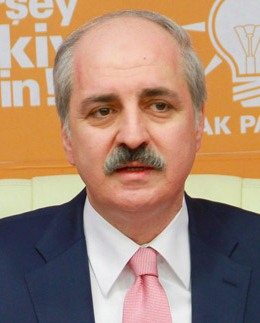
Turkey has a new tourism minister after parliament reshuffle
The Hon. Numan Kurtulmuş is now the new minister of tourism in Turkey. Tourism is one of the most important foreign exchange earners in Turkey. Turkish controversial president Erdogan decided to fire the previous minister Prof. Dr. Nabi Avci and do a more sympathetic replacement.
This was reported by the Turkish newspaper Hürriyet today.
Kurtulmus thanked Avci for his services and pledged to continue important task for the better of the travel and tourism development in Turkey. He left details open.
Kurtulmuş was born in Ünye district of Ordu Province. His grandfather was a major in the Turkish army who fought in the Turkish War of Independence. He is of Georgian descent by his grandmother. Kurtulmuş is married, and is a father of three children. His wife Sevgi Kurtulmuş is an academician. He is fluent in English and his favorite football team is Fenerbahçe.
Kurtulmus received his bachelor’s and master’s degree at Istanbul University’s School of Business Administration. He had been at Cornell University as a visiting researcher, during his dissertation work at Istanbul University. Kurtulmus obtained his PhD in economics in 1992. He became Associate Professor in 1994 at Istanbul University, Faculty of Economics.
In 1998, Kurtulmuş became Istanbul provincial head of the Virtue Party (FP) and a member of the party’s General Administrative Board. Later he served as Istanbul Provincial head of Virtue Party and deputy chair.
Kurtulmuş was elected to the chair of the Felicity Party (SP) at the Third Ordinary Congress of the Party on 26 October 2008. After a rift developed with the followers of former FP leader and former Prime Minister Necmettin Erbakan, signatures of a majority of the delegates asked for renewal of the congress and the sacking of Kurtulmuş. Refusing this, the matter ended up in court, and the court ruled that party administration should be transferred from his leadership to a board of trustees. After the ruling he had to resign from his position on 1 October 2010.
On November 1, 2010, Kurtulmuş founded a new party, the People’s Voice Party (Halkın Sesi Partisi), of which he was elected leader on November 28, 2010. In September 2012, two-year-old conservative-oriented People’s Voice Party(HSP) dissolved itself and joined the ruling Justice and Development Party (AKP) with a majority of its delegates’ votes.
He last served as the Deputy PM.
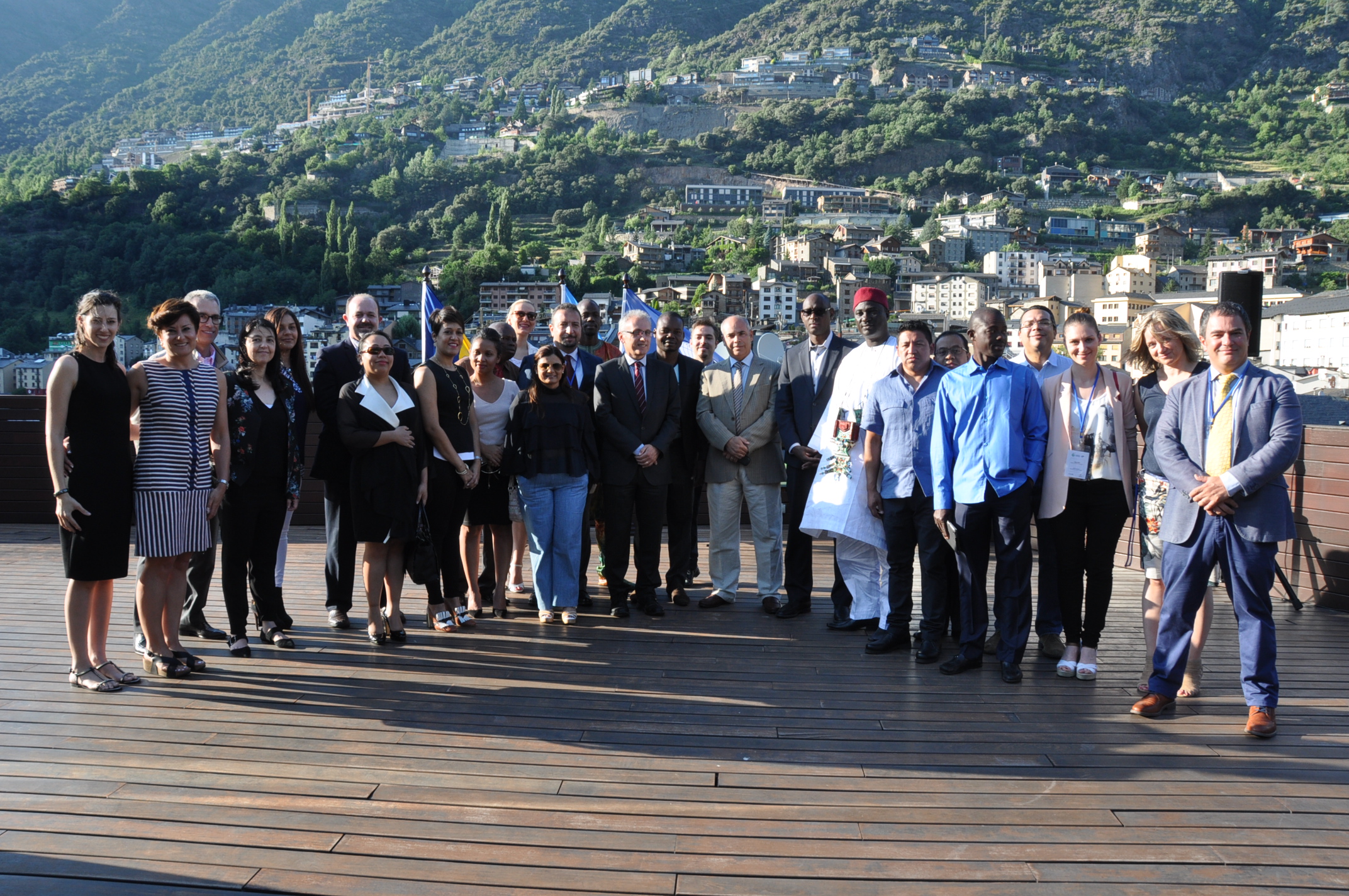
UNWTO.Themis Foundation trains 15 countries on crisis communications
Representatives from 15 Member States of the World Tourism Organization (UNWTO) took part in a three-day training course on crisis communications at the headquarters of the UNWTO.Themis Foundation in the Principality of Andorra. The training, organized by UNWTO and the UNWTO.Themis Foundation, aimed to build resilience at tourism destinations by creating capacity to develop and implement crisis communications strategies.
The Practicum on Crisis Communications included a revision of the different types of crisis that may affect tourism destinations – natural disasters, financial collapses, violent incidents or pandemics, among others – and recommended communications methodologies for each phase of a crisis – before, during and after.
The definition of protocols, the setting up of a crisis communications team, the development of communications materials and ready-to-use templates for each situation, and media relations were some of the topics included in the training.
The Practicum is an annual initiative that provides participants from Africa, the Americas and Europe with the opportunity to exchange views and experiences on various crisis situations and crisis communications cases.
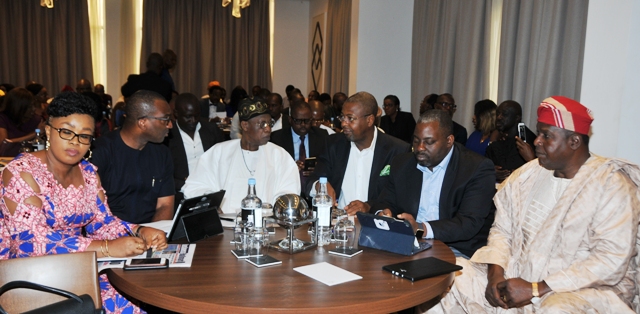
FG Partnership With UNWTO, CNN Come Under Fire From Tourism Stakeholders
Stakeholders comprising some organised tourism private sector associations have reacted angrily to the recent announcement by minister of Information and Culture, Alhaji Lai Mohammed that the Federal Government will go into a tripartite partnership with the CNN and the United Nations World Tourism Organisation [UNWTO] to boost the Creative Industry in Nigeria, using the film industry as a pivot.
First to react was Ikechi Uko, Chief Executive Officer, Akwaaba Travel Market, West Africa biggest annual travel and tourism exhibition, who said “I am surprised that the ministry can be having a discussion with the UNWTO without the organised tourism private sector inputs; considering the private sector experience in dealing with the UN agency, especially on the Tourism Master Plan that has never worked”.
Also speaking from his base in Kaduna, Malan Kabir, President, Association of Tourism Practitioners of Nigeria [ATPN], said that the government does not properly understand what tourism is all about and much more how to make it work.
“From the ways and manner the tourism private sector has been treated in the past, suggests to me that past leaderships of the organised tourism private sector failed to explain to the government on how this industry can work, or perhaps were only interacting with the public sector for their personal benefits.
“In fact there is no continuity, because the minster would have learnt from trends,” he noted.
Kabir concluded by saying that, every minister or director general would always want to start his or her stuff and at the end, nothing is achieved.
On his part, Vincent Ugbor, President, Hotel and Personal Services Employers Association of Nigeria [HOPESEA], said it’s a big shame for the organised tourism private sector not to be carried along, Ugbor therefore, suggested that a protest letter should be sent to the minister and possibly to the Acting President, Professor Yemi Osinbajo.
Lanre Owoseyin, President, Nigeria Hotel Association [NHA] taking a swipe on the past leaders of the Federation of Tourism Associations of Nigeria [FTAN], umbrella body of the private sector, blamed them for the disrespectfulness from government and its agencies.
Owoseyin noted that apart from this current issue, the ministry had in the past too, rubbished the sector for bringing on board just one technocrat on the technical committee of the abandoned Tourism Master Plan Committee, a critical policy that if well-articulated could lay a good foundation for the sector.
“Once again, the minister has been ill advised by choosing Creative Industry and Nollywood shenanigans that his predecessor touted with and never worked”, he said.
Owoseyin lamented that, what would Nigeria be selling or promoting through CNN, is it the pot holes on our roads, permanent darkness across the country or the undeveloped attractions; like Obudu and Tinapa that have all been abandoned, he asked.
Nkereuwem Onung, President, National Association of Tour Operators [NATOP], speaking on behalf of his association said the Ministry and Minister are of the thinking that when they mention names like Cable Network News [CNN] and United Nations World Tourism Organisation [UNWTO], the tourism private sector will be carried away.
He stated further that it is impossible to achieve result in any sector of the economy, much more a service industry like tourism without the involvement of the private sector operators.
“Without the tourism practitioners, the efforts will come to nothing” Onung concluded.
Bankole, Bernard, President, National Association of Nigeria Travel Agencies [NANTA], said he was not aware and that it would be wrong if that is the case.
Bernard said if the country is to embark on self-promotion internationally; using the Creative Industry, Culture and Nollywood as the ministry is set to do, such can still be done with inputs from the tourism private sector.
On his part, Rabo Saleh, President, Federation of Tourism Associations of Nigeria [FTAN], umbrella body for tourism private sector in Nigeria said that government cannot drive tourism without the private sector.
According to him, the private sector is the main driver of the industry, whilst government takes care of policies and provide enabling environment for tourism to flourish.
He however said that it’s not too late to bring the private sector into the discussion now to avoid mistakes of the past.
The minister had announced the partnership in Lagos on Monday July 10, at the Creative Industry Roundtable, saying that the film industry will be used ”as a lens through which the country would project various aspects of the Nigerian Culture, Tourism and similar areas”.
”We are kick-starting the project with a 13-episode production showcasing the various stages in a movie production. These include the choice of location, which will allow us to showcase the various beautiful sceneries available in Nigeria; the choice of wardrobe that will show the rich options in the country’s fashion industry; the choice of sound track that will highlight our rich music genres; the casting that will showcase our abundant talents and the technical part that will provide the platform to show that there is no camera and other gadgets that we don’t have here.
”As part of the project, we will also run a programme on CNN showcasing the 20 Nigerians to watch in the Industry. The Nigerians to be showcased will be selected by the industry players themselves to ensure authenticity,” the Minister said.
The minister also said that the tripartite partnership, as well as the MoUs with the Tony Elumelu Foundation, the Bank of Industry [BoI] and the British Council, were part of the efforts by the Federal Government to transform the Creative Industry to a Creative Economy.
According to him, “Government has no doubt that the plan to transform the Creative Industry to a Creative Economy must be driven by the private sector”.
Mohammed said deliberations from the Roundtable would feed into a larger event, the Creative Industry Financing Conference, slated for July17-18, at the Eko Hotel in Lagos and would be declared opened by Acting President Osinbajo.
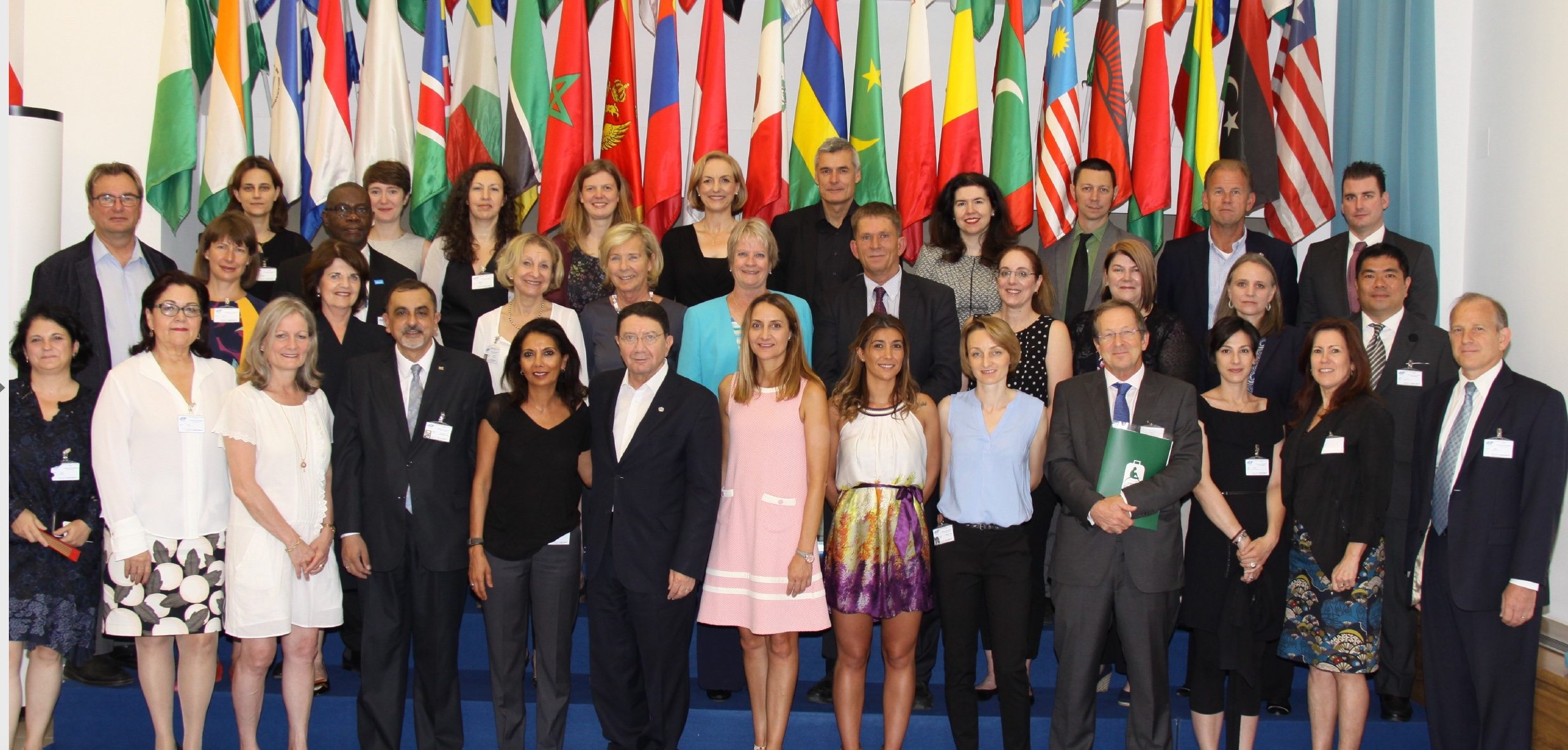
Leaders unite to stop global sexual exploitation of children through travel and tourism
A combination of weak child protection systems, cheap international travel, and growing access to the internet is thwarting efforts to counter the sexual exploitation of children in the travel and tourism industries, a conference on the issue in Madrid this week concluded.
Hosted by the United Nations World Tourism Organization (UNWTO), the meeting of international experts and officials was supported by the government of The Netherlands, UNICEF, the Global Partnership to End Violence against Children, ECPAT International and the High Level Task Force for the Global Study on Sexual Exploitation of Children in Travel and Tourism. Najat Maalla M’jid is the Chair of this Taskforce, which guided the development of the Global Study, and she set the scene for the meeting by stridently declaring, “Sexual exploitation in travel and tourism has a child’s face. No country is untouched by this phenomenon and no child is immune. In this International Year of Sustainable Tourism for Development, let us place children’s right to protection from violence and exploitation at the heart of our actions,”
“We cannot build the responsible and sustainable tourism sector that we seek without protecting the most vulnerable in our societies. To do so we need effective tools and a global commitment” said UNWTO Secretary-General, Taleb Rifai.
Delegates heard that the rise of the Internet and informal operators as well as greater access to cheap international travel have expanded demand and heightened the risk of children beng sexually exploited. At the same time, grinding poverty and lack of education – combined with the continued neglect of child protection systems – have fuelled the supply of children.
In addition, a chronic lack of robust data is allowing offenders to commit their crimes in the shadows and with impunity, while the capacity to respond internationally and nationally is being outpaced.
The UNWTO is expected to ask its General Assembly to approve a new international convention on sustainable tourism in September, with the inclusion of provisions for the protection of children.
The Special Rapporteur on the sale of children and sexual exploitation of children, Maud de Boer Buquicchio, called for, “Child protection to be placed at the core of tourism development strategies.”
UNICEF – a global leader in child protection – emphasised the need for coordinated action. “All of us — from families and governments…to hotel workers, taxi drivers and airline staff…to tour operators and telecommunications companies…to police forces…to UN agencies and NGOs — we all have a responsibility to do all we can to end this monstrous violation of children’s rights…children’s safety…and children’s futures,” said UNICEF Executive Director, Anthony Lake. “It’s everybody’s business to end the business of children being exploited and abused.”
Interpol is releasing improved tools to significantly reduce the possibilities for known sex offenders travelling unnoticed internationally.
Peter van Dalen, from Interpol’s Organized & Emerging Crime Directorate, based in Lyon said, “Anonymity protects traveling sex offenders, and INTERPOL is working with countries to deprive known sex offenders’ of their anonymity, through mechanisms such as an international warning system sharing information across borders about convicted sex offenders, as well as an international vetting system for job applicants applying to working with children.”
The private sector has been closely involved, motivated by the need to combat practices that can seriously affect their reputation and their revenue. ECPAT International is calling for travel and tourism operators to join the “The Code,” a travel industry initiative to stop sexual exploitation of children. Some of the largest players in travel are members.
Head of CSR for RIU hotels – which is a member of The Code – Catalina Alemany-Sorrell championed the commitment of the family owned international hotel chain, “Large companies in the tourism and travel industry have a greater responsibility to the communities where we operate, precisely because of our capacity for influence and transformation. For this reason, we need our commitments to send signals to society that this problem will not be tolerated and that above all, we will fight for a world where children are free from abuse.“
The challenge now is to expand coordinated action to implement the recommendations of last year’s study which called for law enforcement, the private sector and civil society organizations to work together.
The Special Representative of the UN Secretary-General, Marta Santos Pais, encouraged strong linkages with global processes, saying: “The 2030 Agenda for Sustainable Development presents a unique opportunity to reverse this pattern and make all forms of violence against children part of our distant past.
